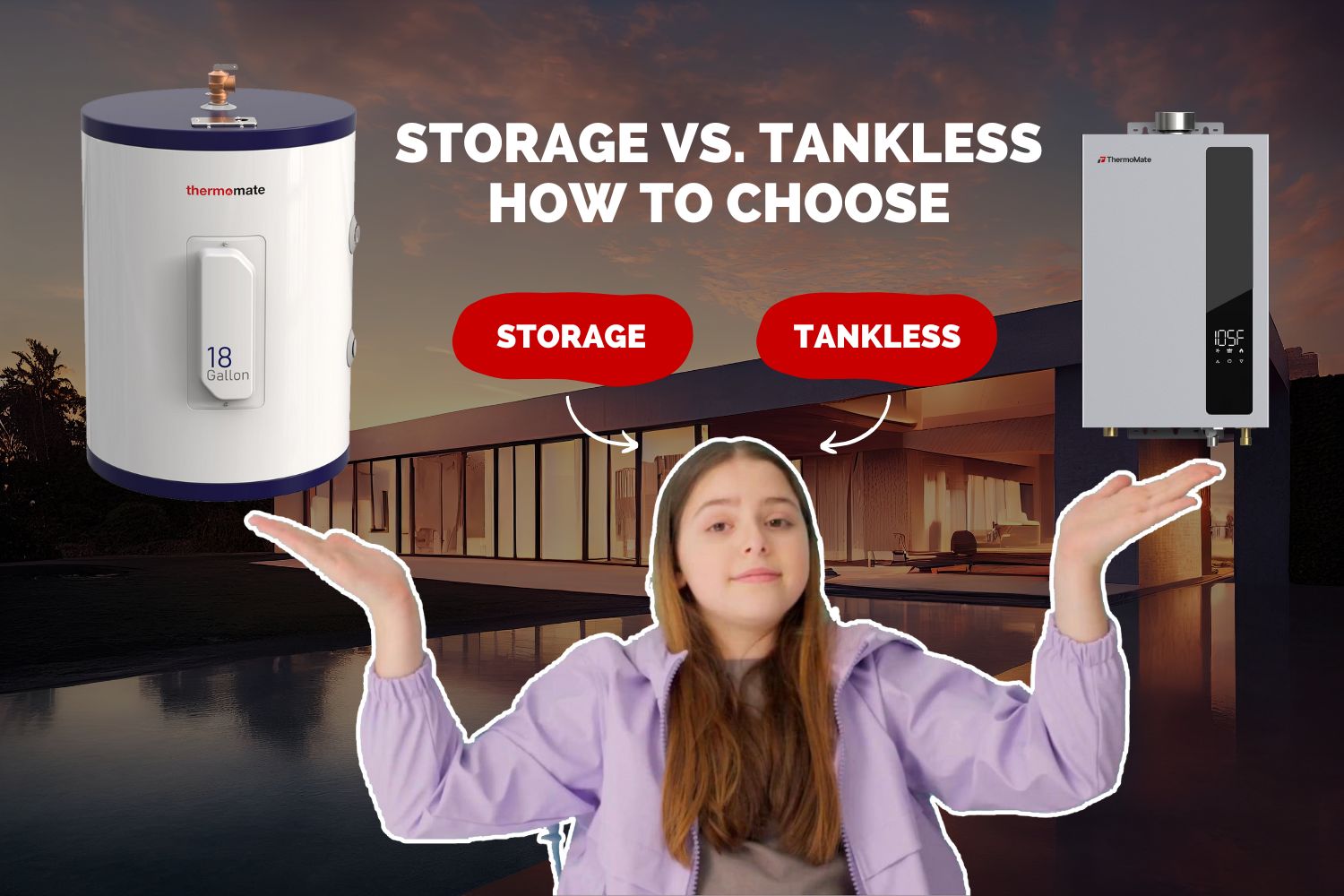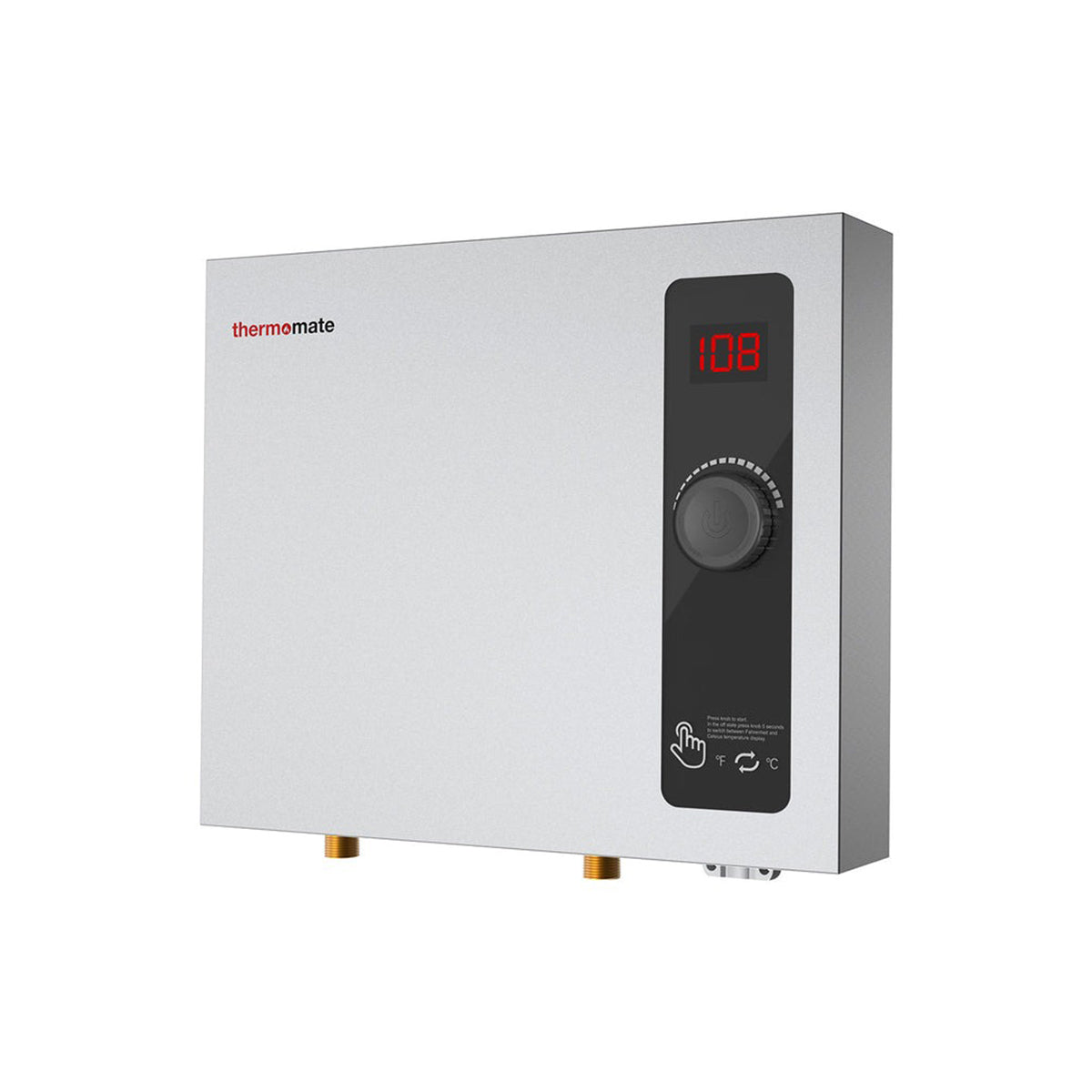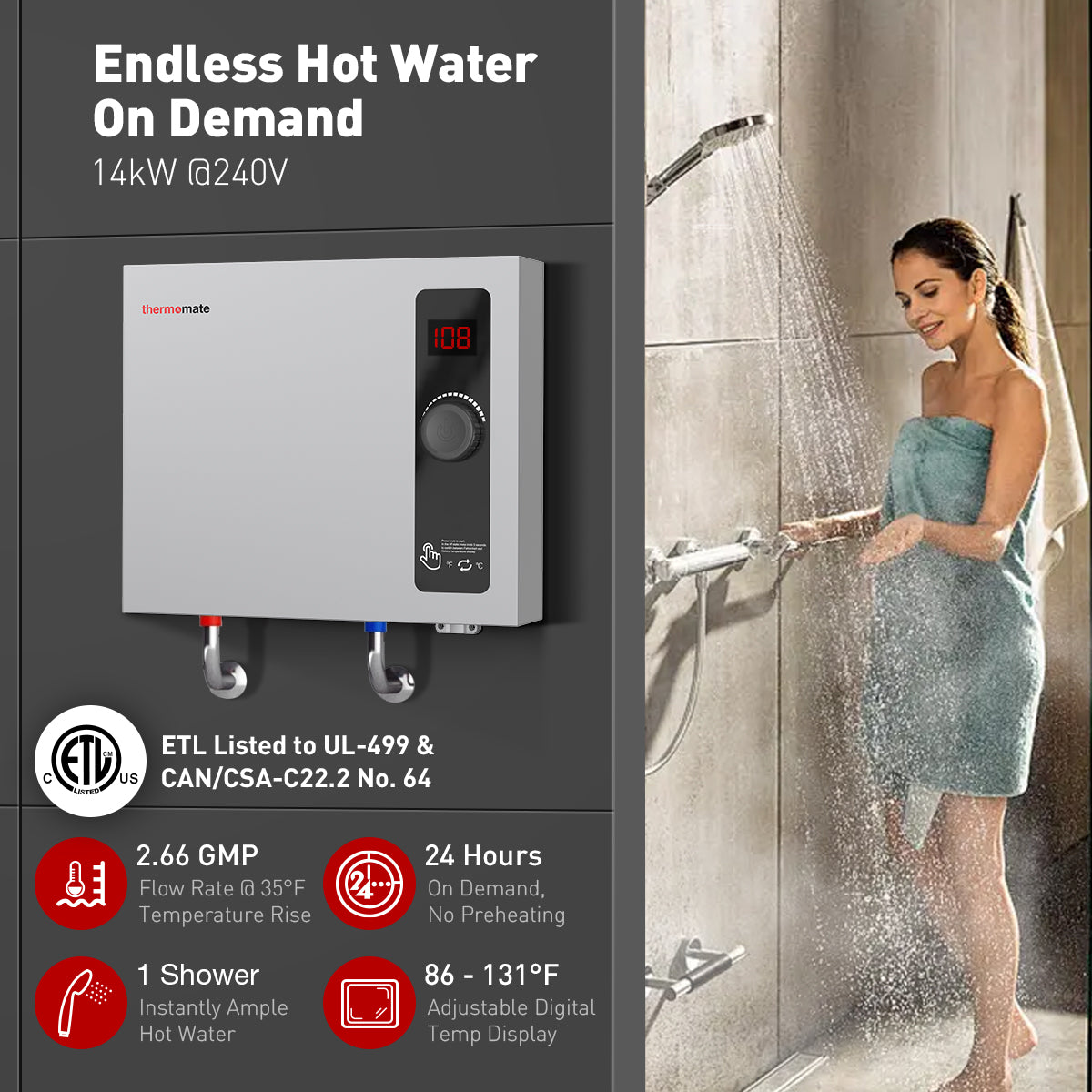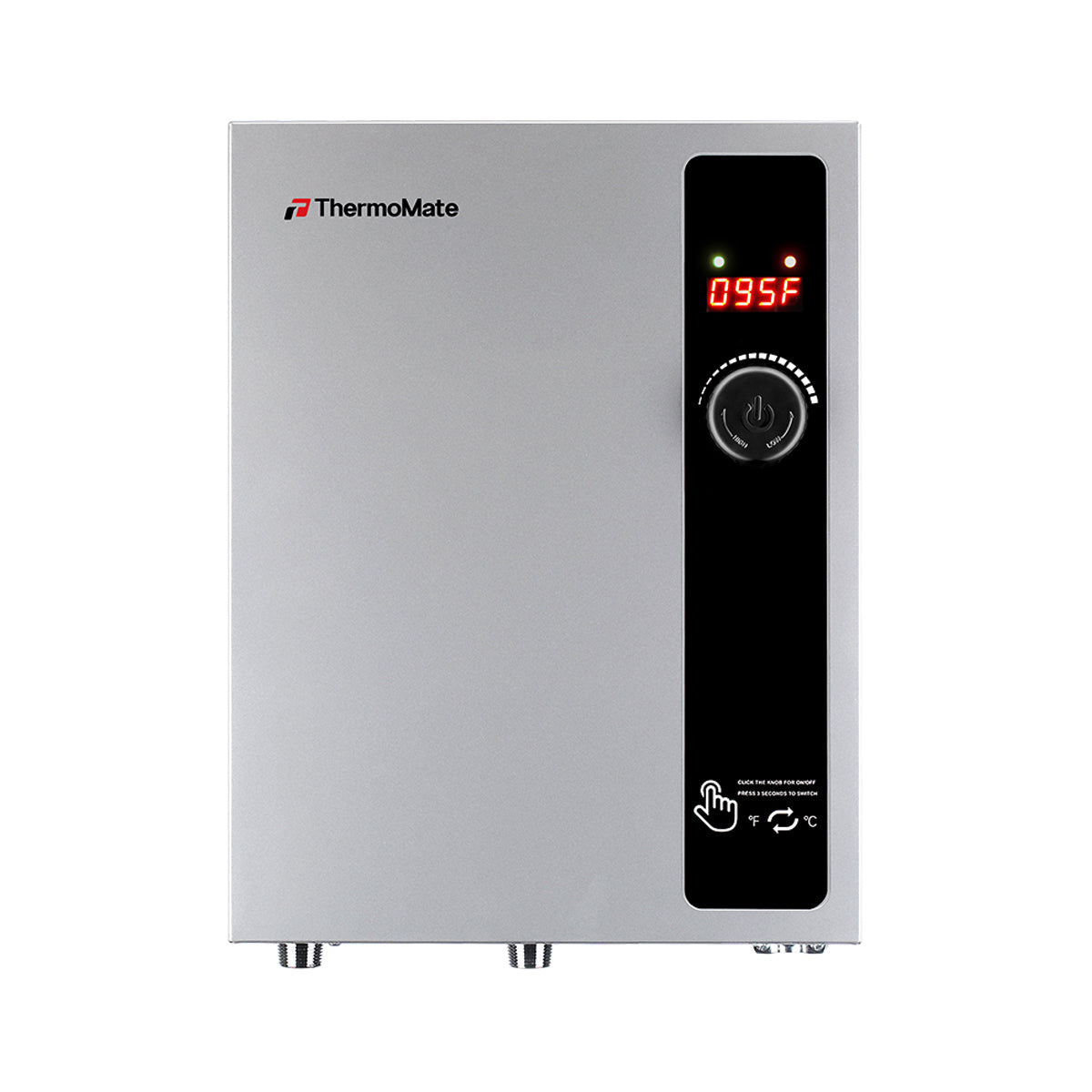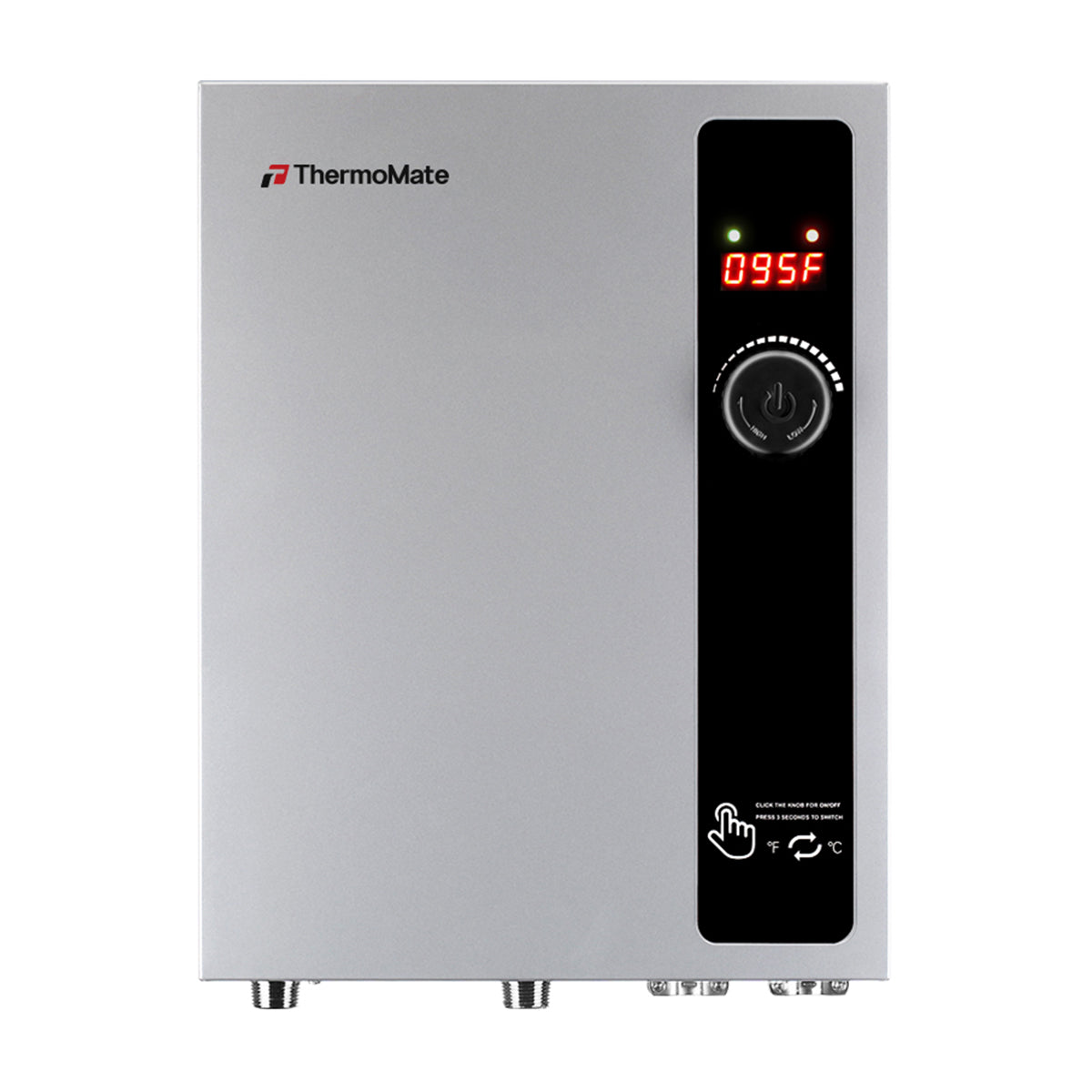Warmwasserspeicher vs. Durchlauferhitzer: Wichtige Unterschiede und Auswahl
Wenn es um die Warmwasserbereitung für Ihr Zuhause geht, dominieren zwei Hauptoptionen den Markt: Warmwasserspeicher und Durchlauferhitzer Wenn Sie die Unterschiede zwischen diesen Systemen kennen, können Sie die beste Lösung für Ihre Bedürfnisse finden. In diesem Leitfaden vergleichen wir die Vor- und Nachteile beider Systeme und helfen Ihnen zu entscheiden, ob ein Durchlauferhitzer oder ein Warmwasserspeicher die bessere Wahl für Ihr Zuhause ist.
Was ist ein Warmwasserspeicher?
Ein Warmwasserspeicher , auch Warmwasserspeicher genannt , ist ein traditionelles System, das Wasser in einem isolierten Tank erwärmt und speichert. Wenn Sie einen Wasserhahn aufdrehen, wird heißes Wasser aus dem Tank entnommen, während kaltes Wasser nachfließt. Diese Systeme sind als Elektro- und Gasmodelle erhältlich und haben verschiedene Kapazitäten, typischerweise zwischen 75 und 320 Litern.
Vorteile von Warmwasserspeichern:
-
Geringere Anschaffungskosten im Vergleich zu Durchlauferhitzern
-
Einfachere Installation und Wartung
-
Liefert sofort heißes Wasser aus dem gespeicherten Vorrat
Nachteile von Warmwasserspeichern:
-
Begrenzte Warmwasserversorgung; sobald das Wasser aufgebraucht ist, dauert es eine Weile, bis es wieder aufgeheizt ist
-
Höhere Energiekosten durch Bereitschaftswärmeverluste
-
Benötigt mehr Platz für die Installation
Was ist ein Durchlauferhitzer?
Ein Durchlauferhitzer , auch als Bedarfswarmwasserbereiter oder Sofortwarmwassersystem bekannt , erwärmt Wasser nur bei Bedarf. Im Gegensatz zu Speichertanks speichern Durchlauferhitzer kein heißes Wasser, sondern erhitzen es sofort, während es durch das Gerät fließt.
Arten von Durchlauferhitzern:
-
Elektrischer Durchlauferhitzer – Ideal für Haushalte mit geringerem Warmwasserbedarf, kompakt in der Größe und äußerst energieeffizient.
-
Durchlauferhitzer mit Gas – Eine leistungsstarke Option für Haushalte mit höherem Warmwasserbedarf, die mehrere Armaturen gleichzeitig mit Warmwasser versorgen kann.
Vorteile von Durchlauferhitzern:
-
Unbegrenzte Warmwasserversorgung
-
Energieeffizienter, da Standby-Wärmeverluste vermieden werden
-
Kompaktes Design, das Platz in Ihrem Zuhause spart
Nachteile von Durchlauferhitzern:
-
Höhere Anschaffungskosten im Vergleich zu Warmwasserspeichern
-
Für die Installation sind möglicherweise Upgrades der Strom- oder Gasleitungen erforderlich
-
Durchflussbegrenzungen bei einigen Modellen
Vergleich von Warmwasserspeichern und Durchlauferhitzern
| Besonderheit | Warmwasserspeicher | Durchlauferhitzer |
|---|---|---|
| Warmwasserversorgung | Begrenzt durch Tankkapazität | Unbegrenzt (auf Abruf) |
| Energieeffizienz | Geringer durch Bereitschaftswärmeverlust | Höher, erhitzt Wasser nur bei Bedarf |
| Lebensdauer | 10-15 Jahre | 20+ Jahre |
| Platzbedarf | Groß, benötigt Platz für ein Aquarium | Kompakt, wandmontiert |
| Vorabkosten | Untere | Höher |
| Betriebskosten | Höher durch kontinuierliche Erwärmung | Geringer durch Bedarfsheizung |
Auswahl des besten Warmwasserbereiters für Ihr Zuhause
Wenn Sie einen elektrischen Durchlauferhitzer suchen , der Ihnen jederzeit warmes Wasser liefert , ist ein elektrischer Durchlauferhitzer die beste Wahl. Er bietet Energieeinsparungen , ein kompaktes Design und eine unbegrenzte Warmwasserversorgung. Benötigt Ihr Haushalt jedoch eine einfache und kostengünstige Lösung mit konstanter Warmwasserversorgung, ist ein Warmwasserspeicher möglicherweise die bessere Wahl.
Für größere Häuser oder Haushalte mit hohem Wasserbedarf ist ein Gas-Durchlauferhitzer möglicherweise die beste Lösung. Diese Gas-Durchlauferhitzer bieten höhere Durchflussraten und können mehrere Geräte gleichzeitig betreiben.
Abschließende Gedanken
Sowohl Warmwasserspeicher als auch Durchlauferhitzer haben ihre Vorteile. Wenn Platzersparnis und Energieeffizienz für Sie oberste Priorität haben, ist ein Durchlauferhitzer – insbesondere ein elektrisches Warmwassersystem – eine Überlegung wert. Sind Kostenersparnis und Einfachheit wichtiger, könnte ein Warmwasserspeicher die richtige Wahl sein.
Berücksichtigen Sie bei der Auswahl des besten Durchlauferhitzers oder Warmwasserspeichers Ihre Haushaltsgröße, Ihren Warmwasserverbrauch und Ihre Energieeffizienzanforderungen. Mit der richtigen Wahl genießen Sie jahrelang zuverlässiges Warmwasser!

